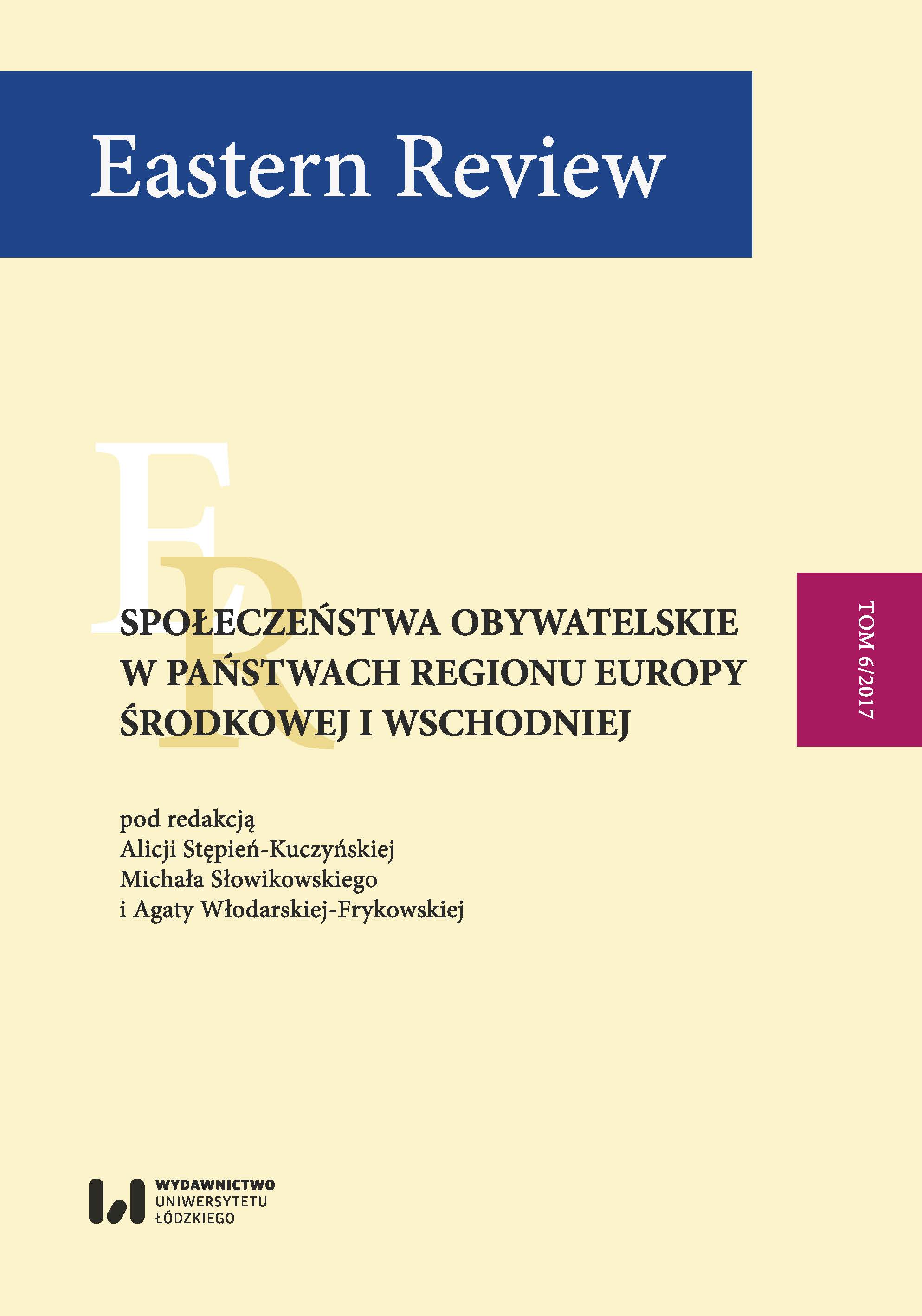Реформа административно-территориального деления и местного самоуправления в Республике Молдова: между институциональной теорией и политической практикой
Reform of the administrative-territorial division and local government in the Republic of Moldova: between institutional theory and political practice
Author(s): Alexandr MacuhinSubject(s): Civil Society
Published by: Wydawnictwo Uniwersytetu Łódzkiego
Keywords: Republic of Moldova; Gagauzia; institutional reform; local government; political parties in Moldova; Moldovan Parliament; Republika Mołdawii; Gagauzja; reformy instytucjonalne; samorząd lokalny
Summary/Abstract: The problem of formation of state institutions in the post-Soviet states is one of the most pressing issues in modern political science study of the region of Eastern Europe. However, very often the problems related to the reform of such an important part of state institutions as the administrative-territorial division and the system of local authorities is guided by populist policies, without taking into account objective economic and social realities of certain regions. In this case, the most important issues related to the functioning of the whole system of the state are considered by the leading political forces exclusively in terms of electoral appeal or the professed political doctrine. The article presents a comparative analysis of the relation of the basic approaches to institutional reforms in the Republic of Moldova to political ideology of the main Moldovan political forces represented in the Parliament at different stages of its development. Typically for post-Soviet republics, in the conditions of high fragmentation of political space and low level of culture of political compromise and consensus, the most important institutional reforms are often carried out for the sake of short-term interests of certain political parties and movements. Thus, a change in the political landscape and the balance of power in the Moldovan Parliament, inevitably leads to a change in the program of institutional reforms. In fact, the policies and reform ideology at different stages may be contrary to the whole previous experience and achievements, which leads to the actual resetting of the entire institutional design of the most important Moldovan state institutions. // Zagadnienie budowy instytucji państwowych w regionie poradzieckim pozostaje jednym z najbardziej aktualnych problemów w literaturze dotyczącej przemian politycznych w regionie Europy Wschodniej. Autor konstatuje, iż zagadnienia podziału administracyjno-terytorialnego i systemu organizacji samorządu lokalnego są przedmiotem działań populistycznych, w tym braku nieuwzględniania społeczno-gospodarczych realiów regionów. W wielu przypadkach kluczowe zagadnienia dotyczące funkcjonowania systemu politycznego państw są postrzegane przez głównych aktorów politycznych w kategoriach przedmiotu przedwyborczej rozgrywki politycznej lub też pozostają zakładnikiem ich postaw ideologicznych. W artykule rozważany jest problem reform instytucjonalnych w Republice Mołdawii z uwzględnieniem istniejących teorii politologicznych w tym obszarze, a także preferencji programowo-ideologicznych głównych sił politycznych w Mołdawii. W analizowanym przypadku reformom instytucjonalnym towarzyszą uwarunkowania charakterystyczne zarówno dla regionu poradzieckiego, jak i endemiczne dla Mołdawii, tj. wysoki poziom fragmentaryzacji przestrzeni politycznej i niski poziom kultury politycznej, w tym skłonności do kompromisu i działań konsensualnych. Realizowane reformy podporządkowane są doraźnym interesom głównych grup politycznych, a zmiana układu sił w mołdawskim parlamencie skutkuje radykalną zmianą kierunku reform instytucjonalnych – w niektórych przypadkach anulowaniem dotychczasowych osiągnięć.
Journal: Eastern Review
- Issue Year: 2017
- Issue No: 6
- Page Range: 129-141
- Page Count: 13
- Language: Russian

